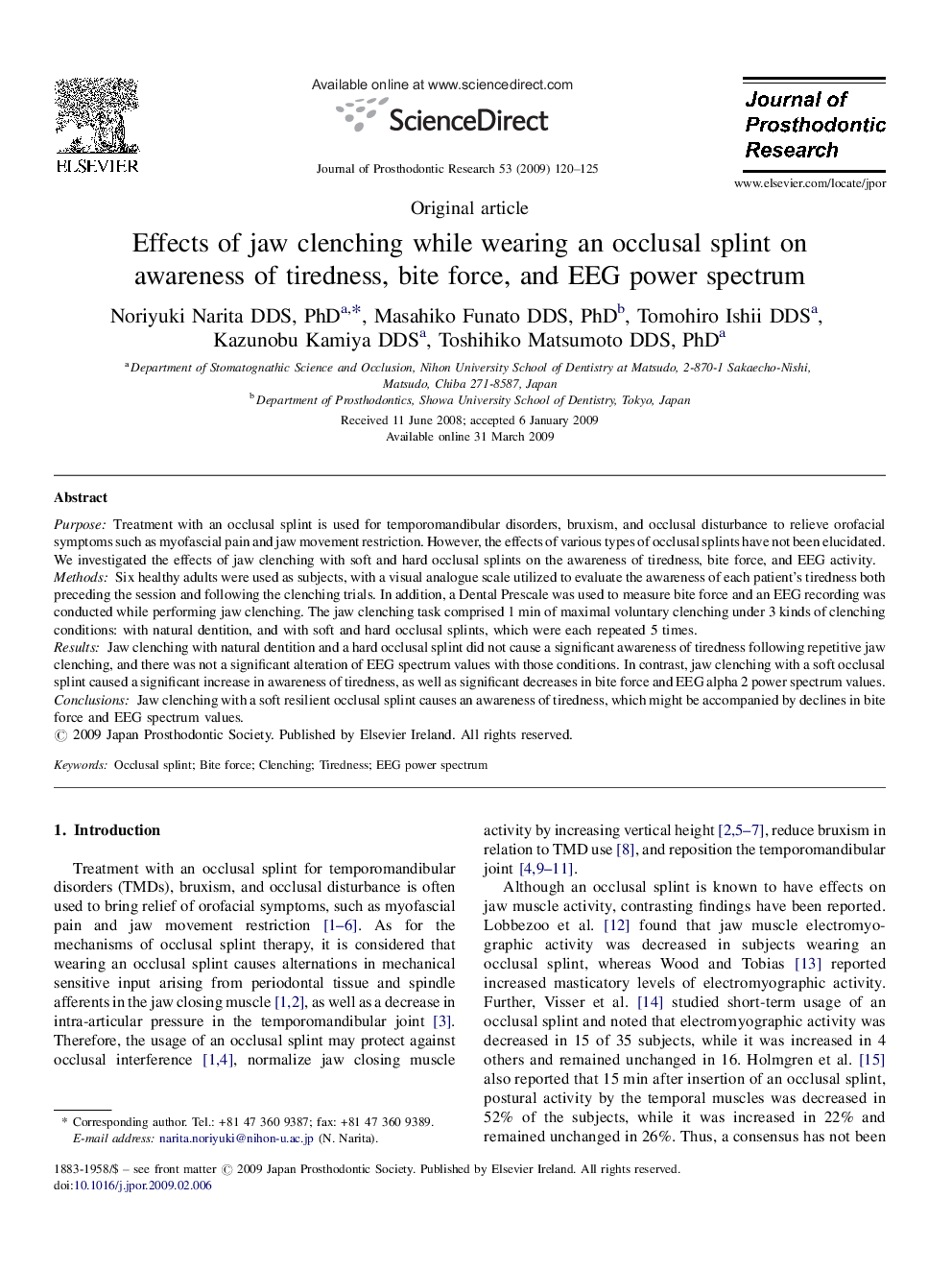| Article ID | Journal | Published Year | Pages | File Type |
|---|---|---|---|---|
| 3160773 | Journal of Prosthodontic Research | 2009 | 6 Pages |
PurposeTreatment with an occlusal splint is used for temporomandibular disorders, bruxism, and occlusal disturbance to relieve orofacial symptoms such as myofascial pain and jaw movement restriction. However, the effects of various types of occlusal splints have not been elucidated. We investigated the effects of jaw clenching with soft and hard occlusal splints on the awareness of tiredness, bite force, and EEG activity.MethodsSix healthy adults were used as subjects, with a visual analogue scale utilized to evaluate the awareness of each patient's tiredness both preceding the session and following the clenching trials. In addition, a Dental Prescale was used to measure bite force and an EEG recording was conducted while performing jaw clenching. The jaw clenching task comprised 1 min of maximal voluntary clenching under 3 kinds of clenching conditions: with natural dentition, and with soft and hard occlusal splints, which were each repeated 5 times.ResultsJaw clenching with natural dentition and a hard occlusal splint did not cause a significant awareness of tiredness following repetitive jaw clenching, and there was not a significant alteration of EEG spectrum values with those conditions. In contrast, jaw clenching with a soft occlusal splint caused a significant increase in awareness of tiredness, as well as significant decreases in bite force and EEG alpha 2 power spectrum values.ConclusionsJaw clenching with a soft resilient occlusal splint causes an awareness of tiredness, which might be accompanied by declines in bite force and EEG spectrum values.
